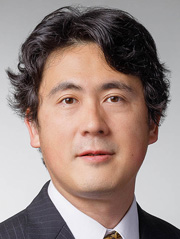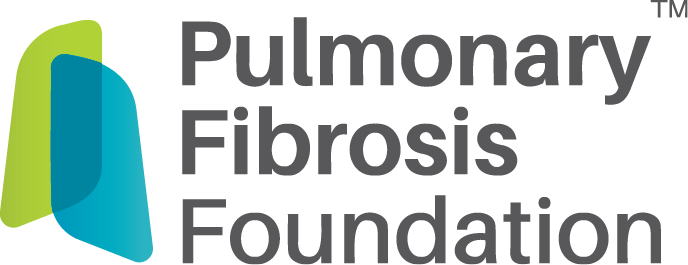2022
-

Luis Rodriguez, PhD
Perelman School of Medicine, University of Pennsylvania
Proposal Title: Metabolic Dysfunction and Epigenetic Reprogramming in Distal Alveolar Epithelial Progenitor Cell Function and IPF
This proposal is funded by Funded by Boehringer Ingelheim Pharmaceuticals, Inc.
Dr. Luis Rodriguez is a Postdoctoral Fellow in the Division of Pulmonary and Critical Care Medicine at the University of Pennsylvania. Under the mentorship of Dr. Michael Beers, Luis applies murine models of pulmonary fibrosis to interrogate the impact of epithelial cell dysfunction in the initiation and progression of fibrotic remodeling. Specifically, his interest lies in alterations to the metabolic program of alveolar epithelial cell progenitors during disease. Prior to joining the Beers Lab, Luis received his PhD from George Mason University where he was mentored by Dr. Geraldine Grant and worked on characterizing the altered phenotype of lung fibroblasts as they are removed from the fibrotic lung and transferred to tissue culture plastic for in-vitro studies. Moving forward Luis hopes to combine his expertise with reductionist in-vitro systems and mouse models of fibrosis to identify novel targets for metabolic interventions in human IPF.
-

Alison DeDent, MD
University of California San Francisco
Proposal Title: Development of a Telehealth Intervention Targeting Barriers to Early Guideline-Concordant Idiopathic Pulmonary Fibrosis Care for Rural Populations
This proposal is funded by Funded by Nelda Hagaman
Dr. Alison DeDent is an Assistant Professor in the Division of Pulmonary and Critical Care Medicine at the University of California, San Francisco. After receiving her medical degree from the University of Toledo College of Medicine, she completed her residency training at the University of Colorado, followed by fellowship training and a master’s degree in clinical research at the University of California, San Francisco under the mentorship of Drs. Neeta Thakur and Harold Collard. Her current research focuses on understanding the effects of living in a rural area on disease severity, outcomes, and access to care in idiopathic pulmonary fibrosis. Because many rural communities face socioeconomic disadvantage and provider shortages compared to urban and suburban areas, she is particularly interested in developing telehealth interventions that seek to facilitate access to early diagnosis and treatment for these patients with interstitial lung disease. Dr. DeDent’s long term goal is to reduce health disparities and improve access to high-quality and equitable care for disadvantaged populations with interstitial lung disease.
Rural populations are older, sicker, and have higher death rates compared to their urban counterparts, and these disparities are largely due to social and economic disadvantage and difficulty accessing care. These effects of living in a rural area may be magnified for a rare disease like idiopathic pulmonary fibrosis (IPF) due to an increased dependence on access to specialty care and treatments. However, few studies have examined rural health disparities in IPF, and strategies to address pulmonary provider shortages in rural areas are greatly needed. Telehealth represents a promising solution to deliver specialty care to rural areas, and studies of its use in IPF are lacking. This proposal will identify the disparities in disease severity, antifibrotic use, and death in rural populations with IPF across 4 interstitial lung disease care centers, seek to understand barriers and facilitators experienced by rural patients to accessing early, comprehensive IPF care and telehealth use, and develop a telehealth-based intervention that aims to facilitate access to IPF care for rural populations and reduce health disparities. -

Genta Ishikawa, MD, MPH
Yale University
Proposal Title: Neuro-innate interactions in pulmonary fibrosis
This proposal is funded by Chuck and Monica McQuaid Family Foundation, and the Jenny H. Krauss and Otto F. Krauss Charitable Foundation Trust, in memory of Stephen N. Dirks
My training as an academic pulmonologist in Japan and the US motivated me to seek new treatments for pulmonary fibrosis. After completing my medical training in my native country, I traveled to the US and earned an MPH degree at Emory University, to develop the skills required for conducting human research. Upon completing this degree, I then pursued clinical fellowship in Pulmonary, Critical Care, and Sleep Medicine at Mount Sinai Hospital, New York, where my clinical experience with pulmonary fibrosis – an incurable and fatal form of progressive interstitial lung diseases (ILDs) – inspired me to devote my career to developing new treatments for this condition. In pursuit of this goal, I started my postdoctoral fellowship at Yale in the laboratory of Dr. Erica Herzog, where I am currently working to translate a newly discovered neuro-innate fibrotic mechanism involving interactions between nerve derived noradrenaline and lung macrophages expressing alpha1 adrenoreceptors into treatments for pulmonary fibrosis. The PFF Scholar Award serves as outstanding opportunity to receive tremendous support for my studies of ILD while continuing my studies within a community of similarly motivated and like-minded scholars.
Because the medications used for Idiopathic Pulmonary Fibrosis (IPF) show limited efficacy and are expensive with many side effects, discovery of effective treatments that are inexpensive and safe is a very important objective. In working towards this goal Ishikawa’s mentor Dr. Herzog has found that adrenergic nerves seem to grow into fibrotic lung regions where they participate in scar formation by releasing a neurotransmitter called noradrenaline. In animal models of IPF this process can be treated with safe and well tolerated drugs called alpha1 blockers that the FDA has already approved for treatment of other conditions. In seeking to develop this finding as a treatment, Ishikawa has performed additional studies that showed interactions between noradrenaline and immune cells called macrophages are reduced by alpha1 blockade. Ishikawa will use the support provided by this PFF Scholar Award to better understand this process with the hope of repurposing alpha1 blockers as new form of antifibrotic therapy for patients with IPF.
-

Cathryn Lee, MD
University of Chicago
Proposal Title: Identifying the Impact of Workplace Exposures On Quality of Life, Lung Function, and Survival Across Interstitial Lung Disease
This proposal is funded by Boehringer Ingelheim Pharmaceuticals, Inc.
Dr. Cathryn Lee is a Clinical Instructor of Medicine in the Section of Pulmonary and Critical Care Medicine at the University of Chicago. She completed her undergraduate education and medical school at Emory University, followed by residency, chief residency, and pulmonary/critical care fellowship at the University of Chicago. She recently completed a Master of Science in Public Health Sciences at the University of Chicago. Her research, under the mentorship of Dr. Mary Strek, focuses on the relationship between inhalational exposures and clinical outcomes in patients with interstitial lung disease. Currently, she is utilizing implementation research techniques to identify and ameliorate occupational exposures contributing to disease incidence and outcomes.
Discovering potential mechanisms for prevention of interstitial lung disease (ILD) is critical as there is currently no cure for this devastating condition. Inhalational exposures represent a potential avenue for disease prevention, but less is known about workplace factors surrounding these exposures, which exposures are highest risk for poor clinical outcomes, and if these exposures translate to subclinical disease in a healthy population. This award proposal seeks to utilize implementation science strategies to better delineate the circumstances surrounding occupational exposures in ILD patients and whether these exposures are related to quality of life in these individuals. Additionally, advanced machine learning techniques will be used to cluster co-exposures together into groups to find which occupations are associated with worse lung function, quality of life, and survival. These exposures will then be validated onto another retrospective cohort without ILD to assess for similar associations with longitudinal lung function. This work will accomplish the essential task of launching strategies for the identification and amelioration of high-risk work exposures for ILD.
